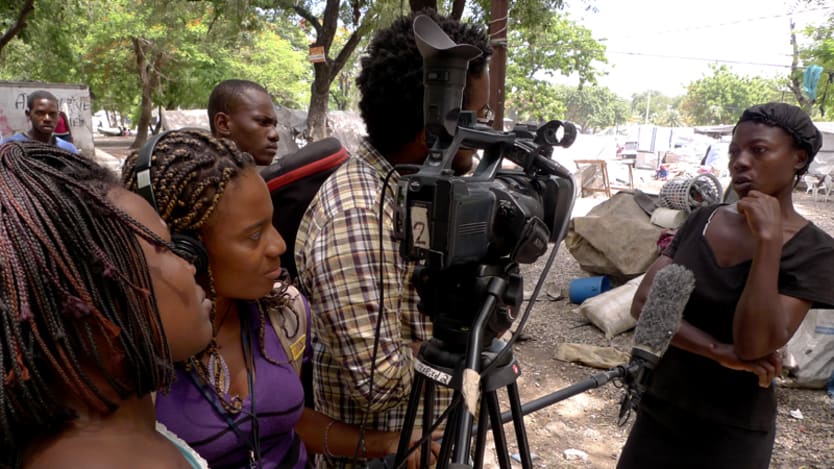
On Aug. 19 the world paid tribute to aid workers who have died in service and celebrated the spirit of humanitarianism around the world.
World Humanitarian Day also offers the opportunity to reflect on the challenges the global community will face in the coming year. With a record 59.5 million people forcibly displaced by conflict and natural disasters at the end of 2014, the future is daunting.
At the same time, those of us who work in the sector are facing increasingly vocal scrutiny of our successes and failures. Among the many reasons for this criticism, one recurring theme stands out: Trust in the legitimacy and effectiveness of emergency relief efforts would be dramatically improved if the “system” was better at communicating with those it is trying to help.
The issue is not new. The International Committee of the Red Cross World Disasters Report highlighted the potency of the problem a decade ago: “Lack of information can make people victims of disaster … people need information as much as water, food, medicine or shelter. Information can save lives.”
See more stories on media and communications:
► Empowering local media can make the difference: 5 lessons from the Ebola crisis
► How the best nonprofits excel at awareness creation
► How text messaging gives voice to marginalized communities
► How to transform your media presence: 6 tips for NGOs in 2015
Even more pointedly, Peter Walker, humanitarian expert and founder of the World Disasters Report, wrote, “Aid recipients lament in one survey after another that relief agencies remain disconnected from their needs — and that there is little that can be done about it. To become as accountable to local populations as they are to the donors who sign their checks, humanitarians should learn to listen to those they aspire to serve.”
What have we learned?
Five and a half years ago, when Haiti was struck by a catastrophic earthquake, a group of agencies, including my own, came together in an attempt to coordinate information services on the response. These were primarily delivered through programs such as the “News You Can Use” service set up by Internews in partnership with local radio stations. Later, research concluded that the broad success of this effort was attributed to “focusing on information needs that Haitian citizens themselves had identified.”
Haiti represented a period of rapid evolution for the humanitarian community, and while significant progress has been made, we still have a lot to learn as recent experiences in Nepal and with the Ebola crisis have revealed.
1. Information chaos is the new normal: The old-fashioned information vacuums ready to be filled with carefully crafted messages from humanitarians are long gone. After the Nepal earthquake in April this year, social media and mobile phones created an immediate rumor mill that dramatically impeded relief efforts and further endangered local populations.
2. Communication must be omnidirectional: Many humanitarian organizations have now become adept at crafting canned messages, quite often based on a sensitive understanding of local needs and culture. However, if we neglect to respond to the resulting questions and concerns of the local community, even the best messages can fall on deaf ears. We need systems that listen, not just those that broadcast.
3. The central role of local media is often overlooked. In Liberia, a humanitarian media working group was set up during the height of the Ebola crisis, but it did not include any representatives of the local media. Trust and legitimacy of humanitarians is heavily compromised when existing and trusted sources of information are ignored or marginalized. Similarly, as much information as possible should be produced in local languages. Liberia has at least 25 accepted vernaculars; Nepal has 123.
4. Outcomes improve when communication is built-in from the outset: As a global community, we need to accept the evidence and internalize the reality that if we get communications right, other emergency response outcomes will improve. Too many donors and big agencies still view emergency communication as “nice to have” but not essential. To repeat the conclusion of the ICRC, communication as aid is as essential as food, water, shelter and medicine.
The necessity of communication and information in a crisis should no longer be in question. It is a basic survival instinct for all of us, in any emergency, to try to find out what to do next and where to seek help and safety.
Conflict in Context is a monthlong global conversation on conflict, transition and recovery hosted by Devex in partnership with Chemonics, Mercy Corps, OSCE and USAID. We’ll decode the challenges and highlight the opportunities countries face while in crisis and what the development community is doing to respond. Visit the campaign site and join the conversation using #ConflictinContext.
Search for articles
Most Read
- 1
- 2
- 3
- 4
- 5








